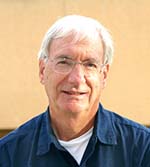March 8, 2010 - By Lisa Trei

Gary Schoolnik
Stanford specialists are working with officials from North Korea to develop that country’s first diagnostic laboratory to test drug-resistant tuberculosis.
A U.S. team led by Stanford epidemiologist Sharon Perry, PhD, recently returned from North Korea after initiating installation of the lab. The project is being led by the Bay Area TB Consortium, which Perry directs, and the Nuclear Threat Initiative, a Washington nonprofit group working to strengthen global security.
“The new laboratory will fill a critical gap in North Korea’s TB control program,” said Perry, who is senior research scientist from the Division of Infectious Diseases at the School of Medicine.
After famines plagued North Korea in the 1990s, the country witnessed a resurgence of tuberculosis. The TB project seeks to strengthen the country’s ability to detect all forms of the disease and support its treatment and control.
“Without these services, considered standard of care in the West, only about 50 percent of TB is detected, and the types of drugs needed to effectively treat the disease cannot be determined,” said Gary Schoolnik, MD, the senior physician on the team and professor of medicine.
Former Sen. Sam Nunn, co-chairman of NTI’s Global Health and Security Initiative, said, “With the emergence of drug-resistant forms of TB, international cooperation is essential, and this work is vital to reduce biological risks and advance health security. The impact in economic and security terms is very costly, particularly for countries with limited resources. The burden could be catastrophic in the event of a major epidemic or global pandemic causing widespread disruption and human suffering.”
The TB Diagnostics Project was launched in early 2008 when North Korean doctors visited California and met with Stanford and Bay Area tuberculosis experts. “This effort represents an unprecedented level of cooperation between the U.S. partners and the North Korean Ministry of Public Health,” said John Lewis, PhD, professor emeritus at Stanford’s Center for International Security and Cooperation.
In addition to Schoolnik and Perry, who is a CISAC senior research scientist, the team included Niaz Banaei, MD, director of the medical school’s Clinical Microbiology Laboratory; medical student Eugene Yim, and two microbiologists from a public health laboratory. The group worked with Louise Gresham, PhD, MPH, director of NTI’s Global Health and Security Initiative, to deliver and install equipment and supplies to Pyongyang.
U.S. participants also included a technical lab team and Christian Friends of Korea, a humanitarian group operating in North Korea for 15 years. The volunteers conducted orientation workshops with scientists and doctors from the Ministry of Public Health. Donated equipment and supplies will be used at the Central Tuberculosis Institute for culture and drug susceptibility testing services for TB patients.
Lisa Trei is public affairs manager at Stanford’s Center for International Security and Cooperation.
About Stanford Medicine
Stanford Medicine is an integrated academic health system comprising the Stanford School of Medicine and adult and pediatric health care delivery systems. Together, they harness the full potential of biomedicine through collaborative research, education and clinical care for patients. For more information, please visit med.stanford.edu.